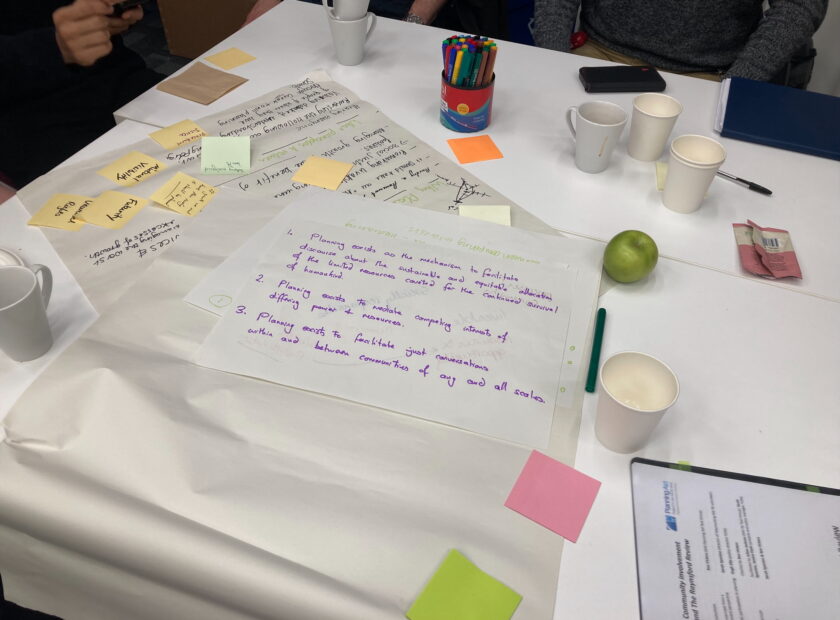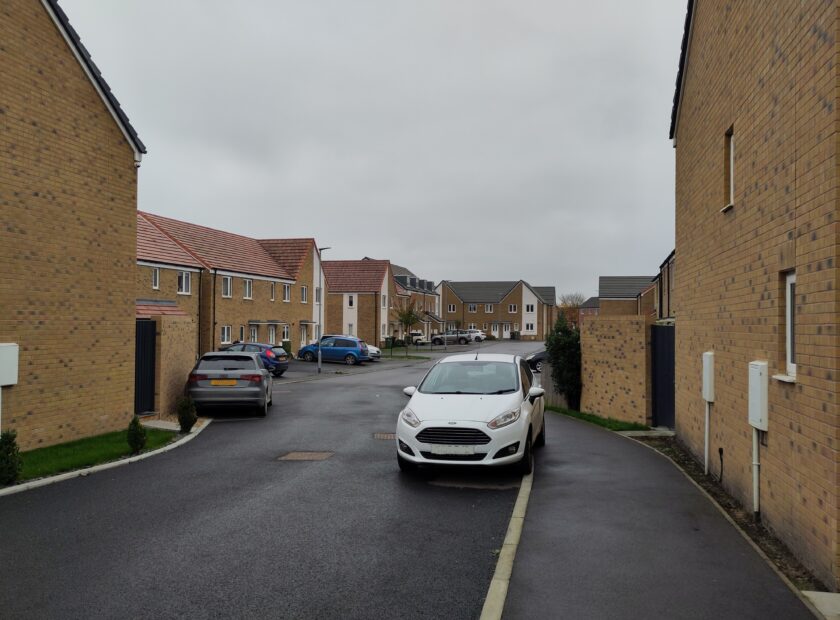Public trust is a powerful concept, that’s beset with fuzziness and contradiction.
We instinctively know if we trust a person, organisation or process, but can’t always clearly explain why.
Leaders universally agree that trust matters, yet don’t pay enough attention to maintaining it. Like a football referee, many don’t fully appreciate its importance until something goes wrong.
I’m sure that most planning and place-making professionals appreciate how volatile trust can be. If you’re in any doubt, here’s a reality check: the sector faces a crisis of confidence amongst the people upon whom its legitimacy depends.
Although I’m fortunate to work with organisations who prioritise building understanding to enable decent development, it’s clear that there is ground to make up.
If we fail to grasp this reality, we risk creating barriers to delivery as communities feel unable to influence the change happening around them and mistrust intensifies.
Trust matters
These issues were starkly highlighted in recent research that colleagues at Social commissioned with YouGov. We looked into what people across the UK think about where they live, their hopes for the future and their trust in organisations involved in placemaking.
Taking the views of more than 2,000 adults of all ages and from walks of life, the research raises challenging questions of those vying for communities’ trust.
Most striking was feedback on who is most trusted to provide clear, accurate information about new development. Although local authorities ranked most highly, with 37% of respondents saying they would trust them as a source of information, the second most common response was that 27% did not trust anyone. Respondents also told us they are more trusting of friends, family and personal contacts (24%) than they are of the local media (21%), housebuilders (11%) or campaign groups (12%) to provide clear, accurate information on proposed developments.
Another key finding was low levels of engagement in consultations on proposed developments. Whilst half (51%) of those surveyed said they had seen or heard about a consultation in their area, just 22% said they have contributed to or attended one. This number drops amongst younger people. Noone who has done the village hall circuit in mid winter should be surprised by this finding.
Confidence in national policies around housing and ‘levelling up’ also fare badly. Just 11% said they expect more investment in local facilities following the coronavirus pandemic, despite promises to level up places outside London and the South East.
And more than half of all respondents (51%) disagreed with the statement that there are not enough homes in their area. This contrasts with the government’s drive for 300,000 new homes in England each year (which the Housing, Communities and Local Government Committee report on England’s planning system says needs fleshing out).
These findings highlight a disconnect between what’s said about new developments and what people think and feel about them.
Although I don’t underestimate the scale of the challenge, I believe it’s possible to address this if we put in the time and effort and are willing to do things differently.
Building trust with communities
Our Place Index report sets out a five-step framework for engagement, to build trust with communities facing change. Its pillars are openness; building relationships; inclusivity; two-way communication; and clarity.
It needs us to step away from tick box engagement that’s shrouded in jargon and engage communities on their terms, rather than in the village hall on a weeknight. It means listening, instead of broadcasting. It means being straight, not ‘spinning the positives.’
This is hard to do and may be uncomfortable. But if earning communities’ trust matters, it must be front and centre of our approach.
We saw in 2020 that communities across the country experienced tremendous changes to how they live, work and travel. Our research highlights evidence that this has sparked a change in how people think about where they live, their communities and high streets. Place-makers should recognise and adapt to these changes.
I won’t end this by saying ‘trust me’. I appreciate it takes more than a blog post to earn that. But please be in no doubt: these changes aren’t coming to an area near you soon. They are happening around you now.
Are you ready to change with it?
Ben Lowndes is Managing Director (South West) at Social, an integrated communications consultancy that specialises in stakeholder and community engagement.



